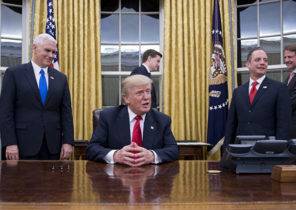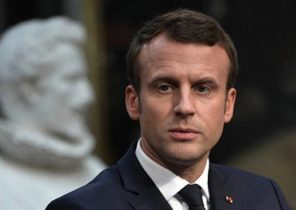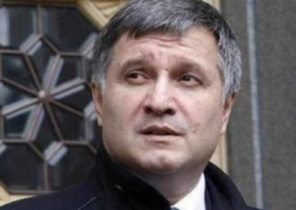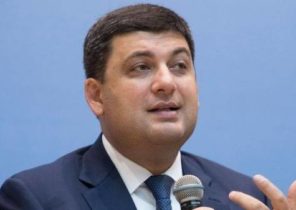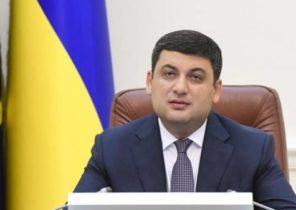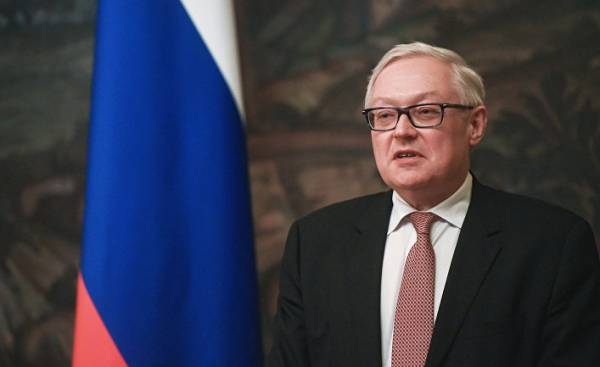
Washington. American and Russian diplomats failed to reach agreement on the question of the return of two Russian diplomatic complexes, which were seized by the Obama administration at the end of December 2016 in response to the alleged Moscow’s intervention in the presidential elections of 2016.
Monday, July 17, Deputy Secretary of state Thomas Shannon (Thomas Shannon), and the Deputy Minister of foreign Affairs of Russia Sergey Ryabkov met in Washington to discuss this and other issues of bilateral relations, however, they failed to reach an agreement.
Last year, Russia abstained from symmetrically to respond to the seizure by the Obama administration two diplomatic facilities in new York and Maryland and the 35 expulsion of Russian diplomats accused of espionage. Then the Kremlin did not rush to answer, hoping that the incoming President Donald trump will cancel these decisions, taken by the Obama administration a few weeks before the resignation.
Now, however, undoing these decisions can result in serious problems for the White house, given the desire of Congress to impose new sanctions against Russia and the ongoing investigation, designed to find out, I joined members of the electoral headquarters of the trump in collusion with Russia. Most likely trump the administration will need to require something very valuable in exchange for a promise to return diplomatic complexes of Russia, otherwise it will be subjected to sharp criticism from aggressive members of Congress from both parties who consider similar steps to surrender to Moscow.
Russia denies meddling in the elections, and Mr. trump and his representatives have repeatedly stated that they don’t colluded with Moscow.
Meanwhile, Russian officials have become increasingly public threats after a personal meeting with Mr. trump and the President of Russia Vladimir Putin on the sidelines of the summit Big twenty, held in July in Hamburg.
“We warned that we have to answer. And American interests in the Russian Federation may suffer if we will not return our diprediksi without any conditions,” said Mr. Ryabkov in an interview to Russian news Agency Interfax after the meeting with Mr. Shannon. According to Ryabkov, Russia and the USA have not yet found understanding this issue, but they continue to make efforts to settle this dispute.
Mr. Ryabkov said that Russia fundamentally rejects attempts to formulate the conditions under which it can be returned this departmenet, which, according to him, was seized illegally. He added that such attempts are doomed to failure, and that they can bring the moment when Russia will be forced to take retaliatory measures.
On Tuesday, July 18, a Kremlin spokesman, Dmitry Peskov, said that the patience of Russia in this matter is running out. “We continue to hope for prudence of our American colleagues in the sense that the return is still the situation in a legal framework in accordance with international law”, — transfers words of Mr. Peskov “Interfax”.
On the morning of Tuesday, July 18, the state Department issued a statement regarding the negotiations, in which nothing was said about the dispute around the Russian diplomatic complexes, sometimes called the diplomatic villas.
“The conversation was hard, honest and balanced and reflected the commitment of both parties to the settlement [of the situation], — the document says. — The United States and Russia are looking for long term solution that will take into account the concerns of both sides, which led to strained relations. The talks reflected the spirit of goodwill, but obviously need to do more work”.
State Department spokesman Cunning Neuert (Heather Nauert) said that the agreement will take some time. “We will not be able to negotiate in the near future,” she added.
Ms. Nauert refused to answer the threat Russia. “This is a hypothetical threat, she said. I know that they are threatened by many things.”
The state Department also noted that Mr. Shannon and Mr. Ryabkov agreed to conduct “negotiations on strategic stability,” but not told what issues will be discussed in these negotiations. They may include discussion of traditional issues of nuclear disarmament and missile defense, as well as the topic of cyber weapons and the issues related to the alleged violation by Russia of the terms of the Treaty on the elimination of intermediate-range and shorter-range. In turn, Russia also accuses the US of violating the Treaty.
Steven Pifer (Steven Pifer), senior research fellow at the Brookings institution and former US Deputy Secretary of state, believes that such negotiations can be very valuable, and should have a broad mandate.
According to Mr. Pifer, administration trump is not necessary to return the diplomatic complexes, if the US will not get something specific in return because the history of the negotiations and exchange of concessions between Washington and Moscow proves that unilateral concessions do little good.
“To give diplomatic complexes, without getting anything in return, would be a mistake,” said Mr. Pifer.
The US has already complained that Russia is trying to prevent the construction of a new us Consulate in St. Petersburg, and, according to Mr. Pifer, one possibility could be the return of diplomatic missions in exchange for this Russia permission to continue this project.
